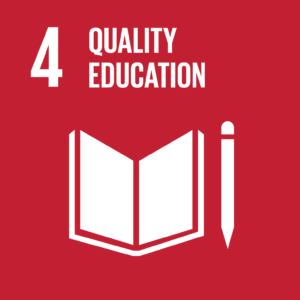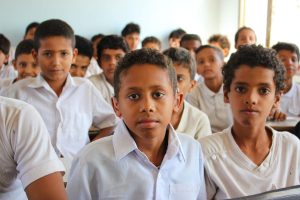 Despite the considerable progress on education access and participation over the past years, 262 million children and youth aged 6 to 17 were still out of school in 2017, and 617 million youth worldwide lack basic mathematics and literacy skills.
Despite the considerable progress on education access and participation over the past years, 262 million children and youth aged 6 to 17 were still out of school in 2017, and 617 million youth worldwide lack basic mathematics and literacy skills.
Many countries in Africa are making positive contributions to promote region-wide integration in areas such as trade and security cooperation. But the education community has not made the same positive steps. Which African country is making the most progress in teaching kids to read by the time they reach third grade? Which language-of-instruction is most effective in early literacy teaching? Which country is getting the most children to complete primary school equipped with basic literacy, numeracy, and critical thinking skills? Which countries in Africa are managing to expand secondary school coverage rapidly while still raising learning outcomes? No one knows because comparable data on learning outcomes over the past across Africa does not exist.
Four years after the SDG targets were adopted, there is still no baseline measure of learning levels at third grade, sixth grade, and the end of lower secondary for

about half of the countries in the world and for most of the poorest countries in the world—the countries whose children will benefit most from schools that deliver learning. Even a goal of establishing such a baseline by 2021 seems audacious, given the slow progress of the past four years. Latin America’s experience provides a clear example of how coordinated and efficient application of resources regionally can build countries’ capacity, strengthen the focus on learning, support better research, and stimulate countries to adopt and diffuse reforms that improve learning. Changing the status quo of learning and improving education impacts raises children’s lives and a country’s potential.
Obtaining a quality education is the foundation to creating sustainable development. In addition to improving quality of life, access to inclusive education can help equip locals with the tools required to develop innovative solutions to the world’s greatest problems. Rapid technological changes present opportunities and challenges, but the capacities of teachers and the quality of education have not kept pace with other positive developments. Refocused efforts are needed to improve learning outcomes for the full life cycle, especially for women, girls and marginalized people in vulnerable settings. In 2015, an estimated 617 million children and adolescents of primary and lower secondary school age worldwide – more than 50 percent – were not achieving minimum proficiency levels in reading and mathematics.
The international community has committed to important developments goals, and we need data and cooperation to achieve these goals.
By 2030, the international community commits to ensure that all learners acquire the knowledge and skills needed to promote sustainable development, including, among others, through education for sustainable development and sustainable lifestyles, human rights, gender equality, promotion of a culture of peace and non-violence, global citizenship and appreciation of cultural diversity and of culture’s contribution to sustainable development
Globally, there has been little progress in the percentage of primary school teachers who are trained: it has been stagnating at about 85 per cent since 2015. The proportion is lowest in sub-Saharan Africa at a mere 64 percent. Regional cooperation platforms must prioritise learning outcomes, education data collection, research, and analysis in order to inform and ensure best practice across countries.